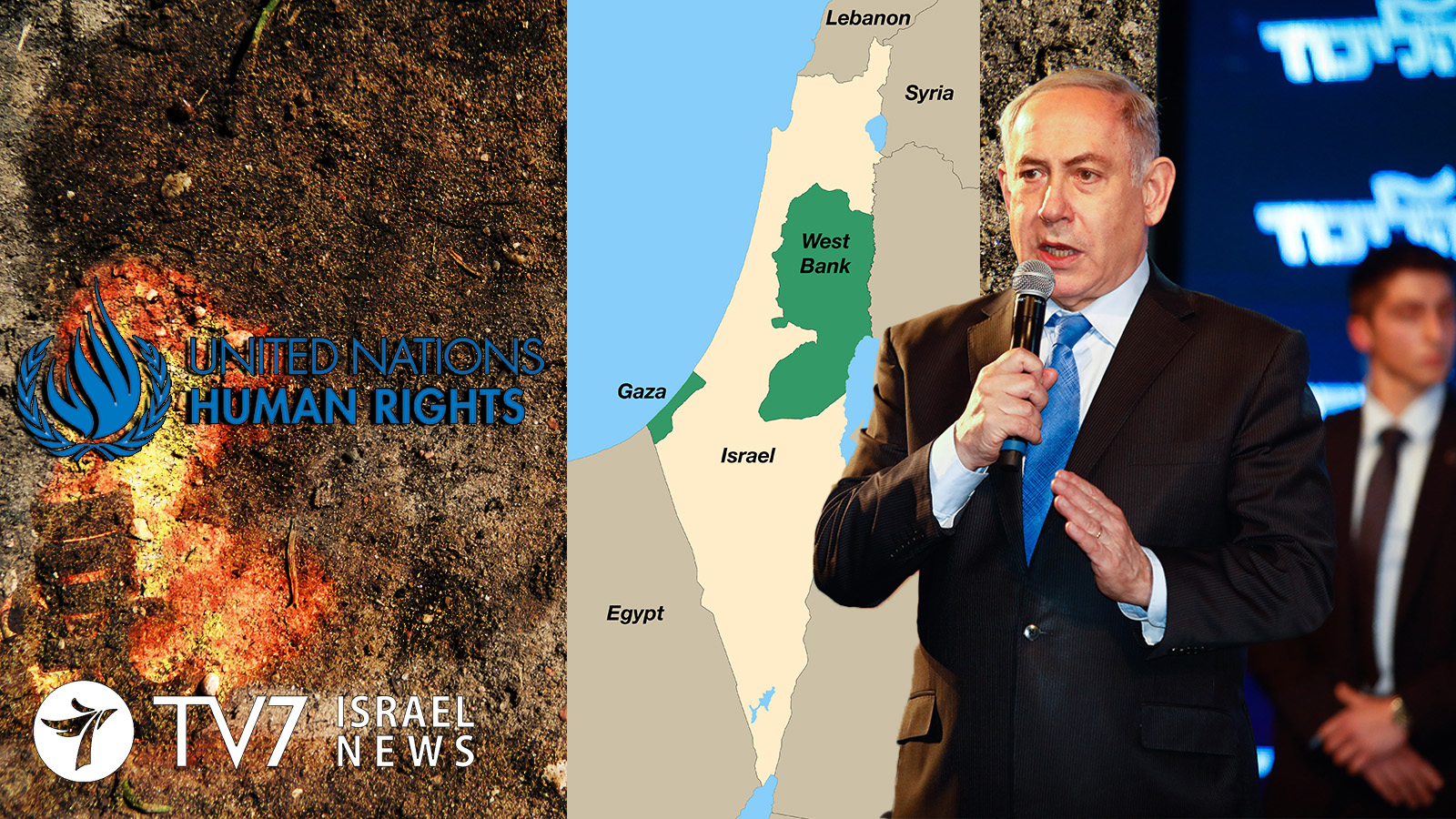The United Nations Human Rights Council published a list of 112 international companies with direct ties to Israeli settlements located in what the UN body deems to be “occupied territories” and therefore ‘illegal under international law.’ 94 of the entities are legally registered in Israel, while the remaining 18 are based in other countries including the United States, Britain and France.
The report does not have immediate legal implications for the listed companies although it may serve as a tool for anti-Israel organizations promoting the Boycott, Divestment and Sanctions (BDS) campaign against Israel, particularly lands disputed by much of the international community.
According to the Spokesman UN Office of the High Commissioner for Human Rights, Rupert Colville, “The fact-finding mission highlighted ten types of business activities it viewed as being of particular concern given the well-established illegal nature of the settlements in the occupied Palestinian territory, and their impact on the daily lives and the human rights of the Palestinian people on whose lands the settlements have been built and continue to be built.”
In anticipation of a backlash from Israel and its allies, most notably the US, Colville insisted that the publication does not constitute a “blacklist,” “nor does it qualify any companies’ activities as illegal,” which he said would be “a separate and highly-complicated determination” and “something which, ultimately, could only be decided on a case-by-case basis through a competent judicial process.”
The UNHRC also sought to legitimize the perceived-condemnatory “data base” by highlighting it resulted from “a state-led initiative,” which Mr. Colville said was passed by a vote of 32 in favor with 15 abstentions. The UNHRC Spokesman stressed that “it is important to note that not one single state voted against it” (Resolution 31/36). He added that “what happens next, that is also in the hand of states,” but noted that “The report recommends that if states wish to follow up on this, they should consider setting up an independent expert body to take this work forward.”
A comprehensive TV7 investigation into the matter found that UNHRC Resolution 31/35, which was adopted on 24 March 2016, was submitted by the Organization of Islamic Cooperation (OIC), which claims to be “the collective voice of the Muslim world” and officially declares it aims to “safeguard and protect the interests of the Muslim world.” OIC member states include the Islamic Republic of Iran, Saudi Arabia, Iraq, Pakistan and the Palestinian Authority among many others.
TV7’s investigation further revealed that the resolution calling for the creation of such a “data base” was officially brought forward by Pakistan on behalf of the OIC. Those who approved the measure include Belgium, China, France, Indonesia, Russia, Philippines, Portugal, Saudi Arabia and South Africa. In contrast, among the abstaining states were Germany, India, the Netherlands, the Republic of Korea and the United Kingdom.
In a swift response to the list’s publication, Israeli Prime Minister Benjamin Netanyahu said, “We strongly reject this contemptible effort” by “a biased body that is devoid of influence.” The Israeli leader further warned that “whoever boycotts Israel will be boycotted,” as is the case throughout much of the United States where laws have been adopted against any entities that comply with the BDS movement. “This body is unimportant,” charged Netanyahu, arguing that “Instead of the organization dealing with human rights, it only tries to disparage Israel.”
Providing tailwind to Netanyahu’s fierce criticism, Israeli Foreign Minister Yisrael Katz stressed, “The Commissioner’s decision to continue to pursue an anti-Israel stance at the UN Human Rights Council is a stain on the office of the UN Commissioner and on human rights itself.” The top Israeli diplomat further asserted that “With this announcement, the Commissioner has become a partner and tool of the boycott movement, despite the ‘blacklist’ not having any tangible legal implication.”
It is important to note that among the business entities listed in the UN report are many which employ local Palestinian workers. As pointed out by the Chairman of the YESHA Settlement Movement, Yigal Dilmoni, “All these companies that do business in Judea and Samaria, the Jordan Valley and the Golan Heights encourage the region’s economy; they help Israelis and Palestinians alike to live a better life. These companies are bringing far more peace to the region than the UN ever did.”
Palestinian leadership predictably hailed the report as a “victory for international law,” and urged UN member states to instruct all of the listed companies “to end their work immediately with the settlement system.” Senior PLO official Wasel Abu Youssef said, “”We have pursued this issue with the aim for it to be taken seriously by international organizations and especially the United Nations, including the Human Rights Council, through publishing the names of these companies so they would take action against them (the companies) in case they continue to deal with these illegal settlements.”
The Islamist-Hamas organization also praised the world body’s report as “a step on the right track to isolate the Israeli occupation and hold it accountable for its crimes,” while further calling on the international community to advance “more serious steps… to protect the rights of the Palestinian people.”
